Recent Blog Posts
What Happens if You Get Charged with DUI for the Third Time?
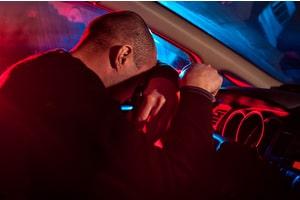 Drunk driving is a criminal offense punished by fees, license revocation, and even jail time. The severity of the penalties associated with drunk driving charges depends on several factors including the person’s past criminal history.
Drunk driving is a criminal offense punished by fees, license revocation, and even jail time. The severity of the penalties associated with drunk driving charges depends on several factors including the person’s past criminal history.
If you were arrested for driving under the influence (DUI) and you have two prior DUI convictions on your record, the penalties you face are especially harsh. It is important to contact a DUI defense lawyer right away. Your lawyer can help you understand your options, protect your rights as a criminal defendant, and determine the best way to defend yourself against the DUI charges.
Criminal Penalties for a Third Drunk Driving Conviction
Penalties for driving under the influence increase with each subsequent offense. Conviction for a third-time DUI offense in California is punishable by:
-
Three to five years probation
Can I Lose My CDL Because of a Medical Condition in California?
 When we think of driver’s license suspensions and revocations, we usually assume that the person has lost his or her license because of drunk driving or another criminal offense. However, sometimes, commercial driver’s license holders lose their licenses due to no fault of their own. California has the authority to revoke a person’s driver’s license due to concerns about how a health condition affects their ability to drive safely.
When we think of driver’s license suspensions and revocations, we usually assume that the person has lost his or her license because of drunk driving or another criminal offense. However, sometimes, commercial driver’s license holders lose their licenses due to no fault of their own. California has the authority to revoke a person’s driver’s license due to concerns about how a health condition affects their ability to drive safely.
Mental and Physical Health Problems Can Lead to License Revocation
California law authorizes the DMV to revoke a person’s driver’s license if they have a medical condition that makes them unable to drive safely. Commercial driver’s license holders need their CDL to earn a living. Consequently, the risk of losing their license due to a mental or physical health condition is a very real concern.
Drunk Driving Accidents Resulting in Injury May Be a Misdemeanor or Felony
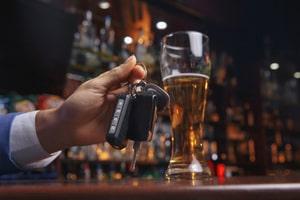 Alcoholic beverages are an everyday part of our culture, so it is easy to forget just how profoundly they impact our bodies and minds. Alcohol decreases our reaction time, our impulse control, and impairs memory and concentration. Driving a vehicle while under the influence of alcohol can be extremely dangerous for the driver and everyone else on the road. Consequently, drunk driving is penalized harshly in California – especially if there is an accident resulting in injury.
Alcoholic beverages are an everyday part of our culture, so it is easy to forget just how profoundly they impact our bodies and minds. Alcohol decreases our reaction time, our impulse control, and impairs memory and concentration. Driving a vehicle while under the influence of alcohol can be extremely dangerous for the driver and everyone else on the road. Consequently, drunk driving is penalized harshly in California – especially if there is an accident resulting in injury.
If you or a loved one were charged with DUI resulting in injury, it is important to know what you are up against.
DUI Resulting in Injury to Another Person
In California, DUI with injury is a “wobbler” offense meaning it can be a felony or misdemeanor depending on the circumstances. The offender’s criminal history and the circumstances of the DUI accident impact the type of charge the person faces. Often, DUI resulting in injury to another person is a felony due to the nature of the offense. However, a skilled DUI defense lawyer may be able to get the charges reduced to a misdemeanor.
Assessing the Accuracy of Drunk Driving Tests
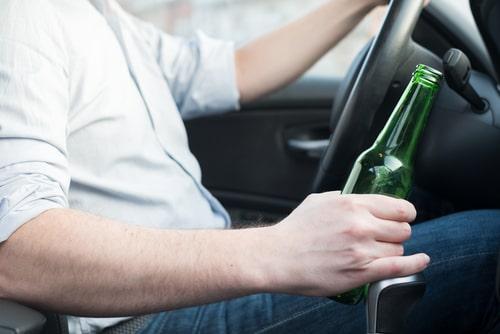 Charges for driving under the influence can lead to heavy fines, loss of driving privileges, and in some cases, jail time. However, there are many reasons that DUI charges can be dismissed or reduced. Often, the evidence police use to arrest someone for DUI is flawed. A skilled criminal defense lawyer can help defendants find inconsistencies and weaknesses in the prosecution’s case against them. DUI tests including breath tests, blood tests, and field sobriety tests can be inaccurate for many different reasons.
Charges for driving under the influence can lead to heavy fines, loss of driving privileges, and in some cases, jail time. However, there are many reasons that DUI charges can be dismissed or reduced. Often, the evidence police use to arrest someone for DUI is flawed. A skilled criminal defense lawyer can help defendants find inconsistencies and weaknesses in the prosecution’s case against them. DUI tests including breath tests, blood tests, and field sobriety tests can be inaccurate for many different reasons.
Are Field Sobriety Tests Good Indicators of Intoxication?
If police suspect that someone is driving while intoxicated, they may ask the driver to perform a series of physical actions called field sobriety tests. The most common field sobriety tests include:
-
Walk and turn – The driver is asked to walk toe to heel in a straight line.
-
Horizontal gaze nystagmus – The driver is asked to follow an object with his or her eyes while police look for jerking motions in the eyes that are indicative of intoxication.
Can the Popular “Keto Diet” Lead to a False Positive on an Alcohol Breath Test?
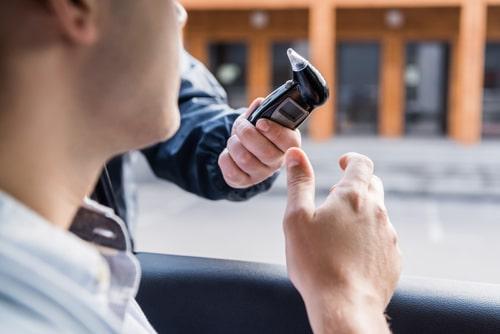 Alcohol breath tests or “breathalyzers” as they are often called, test the amount of alcohol on a person’s breath. This information can be used to determine the test taker’s blood alcohol content (BAC). The results of breathalyzer tests are frequently used to prosecute drivers for driving under the influence (DUI). However, these tests are not infallible.
Alcohol breath tests or “breathalyzers” as they are often called, test the amount of alcohol on a person’s breath. This information can be used to determine the test taker’s blood alcohol content (BAC). The results of breathalyzer tests are frequently used to prosecute drivers for driving under the influence (DUI). However, these tests are not infallible.
Testing devices that are not properly cleaned, regularly maintained, and administered correctly can yield inaccurate results. Even something as innocuous as a person’s diet may lead to inaccurate breathalyzer results. Recently, many people have questioned whether the increasingly popular keto diet could lead to false-positive breath test results and, consequently, charges for drunk driving.
Can Being Keto Really Affect Breathalyzer Tests?
The keto diet requires dieters to abstain from foods containing significant amounts of sugar or carbohydrates. This forces the body to use fat as an energy source. When fat is metabolized by the body, chemicals called ketones are produced. Ketones are chemically similar to isopropyl alcohol. If a breathalyzer test is not sophisticated enough to distinguish between isopropyl alcohol and ethyl alcohol, the alcohol found in alcoholic beverages like wine and beer, it is possible that ketones in the breath will cause the breath test to yield an artificially inflated BAC. However, advanced testing devices are able to differentiate between ketones and the ethyl alcohol found in alcoholic drinks.
Can Police Search My Property Without a Warrant in California?
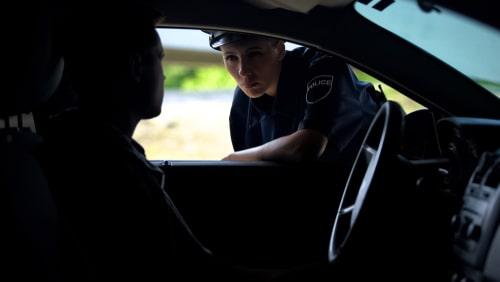 Individuals in the United States have important rights protected by the Constitution and other legislation. One of these rights is the right to be free from “unreasonable search and seizure.” The Fourth Amendment to the Constitution ensures that police and other government officials may not search a person’s property or take property without a legitimate reason. In many cases, police must get a search warrant signed by a judge before they can search a person’s property. However, there are many exceptions to search and seizure laws and our right to privacy varies depending on the type of property in question.
Individuals in the United States have important rights protected by the Constitution and other legislation. One of these rights is the right to be free from “unreasonable search and seizure.” The Fourth Amendment to the Constitution ensures that police and other government officials may not search a person’s property or take property without a legitimate reason. In many cases, police must get a search warrant signed by a judge before they can search a person’s property. However, there are many exceptions to search and seizure laws and our right to privacy varies depending on the type of property in question.
Arrests for driving under the influence (DUI) can escalate into much greater issues when police search the car and find evidence of another crime. Whether you have been charged with a criminal offense after a police search or you simply want to know your rights, understanding when police can and cannot search without a search warrant is crucial.
Will I Be Required to Use an IID After a DUI Conviction?
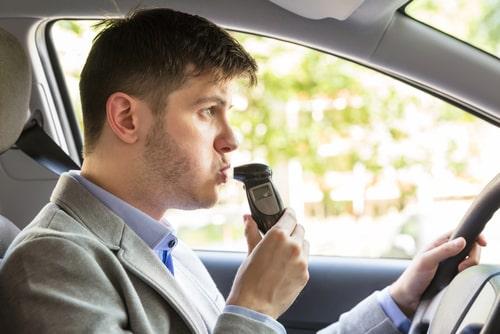 Being charged with driving under the influence (DUI) can lead to a number of difficulties that will affect a person’s life, including restrictions on their ability to drive. One issue that people may not be aware of is the requirement to use a breath alcohol ignition interlock device (BAIID). Drivers who are arrested for DUI will want to be sure to understand when these requirements will apply and the restrictions that they may face when using these devices.
Being charged with driving under the influence (DUI) can lead to a number of difficulties that will affect a person’s life, including restrictions on their ability to drive. One issue that people may not be aware of is the requirement to use a breath alcohol ignition interlock device (BAIID). Drivers who are arrested for DUI will want to be sure to understand when these requirements will apply and the restrictions that they may face when using these devices.
IID Requirements in California
An ignition interlock device or IID is a breathalyzer that will be installed in a person’s vehicle. Before starting the vehicle and at certain intervals while driving, a person will be required to give a breath sample. The vehicle will not start if the IID registers alcohol in the driver’s breath. In addition, any readings that show that a driver has attempted to drive with alcohol in their system will be reported to the authorities, and the driver may face additional criminal charges or restrictions to their driver’s license.
Can I Be Charged With DUI in California After Using Marijuana?
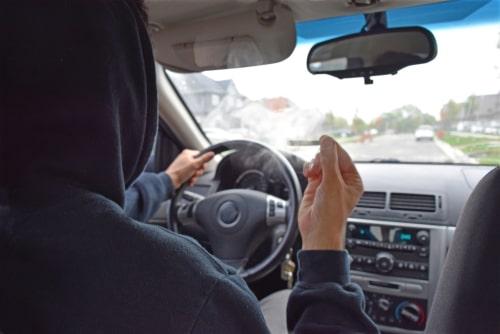 In California, marijuana has been legal for both recreational and medical use since 2016. The state’s laws treat this drug similarly to alcohol, and people over the age of 21 are allowed to purchase marijuana from licensed dispensaries for their own personal use. Because marijuana use can affect a person’s ability to operate a motor vehicle safely, people are restricted from “driving while high.” The state’s DUI laws apply to marijuana as well as alcohol, and drivers may face consequences if they are arrested for driving while they are intoxicated by marijuana or a combination of substances.
In California, marijuana has been legal for both recreational and medical use since 2016. The state’s laws treat this drug similarly to alcohol, and people over the age of 21 are allowed to purchase marijuana from licensed dispensaries for their own personal use. Because marijuana use can affect a person’s ability to operate a motor vehicle safely, people are restricted from “driving while high.” The state’s DUI laws apply to marijuana as well as alcohol, and drivers may face consequences if they are arrested for driving while they are intoxicated by marijuana or a combination of substances.
Legal Issues Affecting Marijuana DUI Cases
Marijuana can affect a driver in many ways, and a person may experience delayed reaction times, a lack of coordination, impairments to judgment, and difficulty perceiving factors such as time and speed. However, it is not always easy to determine a person’s level of intoxication. Unlike alcohol, which enters and leaves a person’s body quickly, the chemicals in marijuana can remain in a person’s system for a great deal of time. Since different people absorb and react to marijuana differently, it can be impossible to determine a specific amount of the drug that will cause a person to be intoxicated.
New DUI Diversion Law Causes Controversy
 A new law that allows judges to grant diversion to those convicted of misdemeanor driving under the influence (DUI) has been causing confusion in the California court system, according to The Press-Enterprise. Critics of the measure say judges are applying it inconsistently, often granting diversion to defendants with means while poorer defendants are punished with criminal penalties.
A new law that allows judges to grant diversion to those convicted of misdemeanor driving under the influence (DUI) has been causing confusion in the California court system, according to The Press-Enterprise. Critics of the measure say judges are applying it inconsistently, often granting diversion to defendants with means while poorer defendants are punished with criminal penalties.
Assembly Bill 3234
Assemblyman Phil Ting, a Democrat from San Francisco, introduced Assembly Bill 3234 as part of a criminal justice reform package designed to, among other things, give judges the discretion to place first-time DUI offenders into a diversion program instead of jail.
Ting said the measure was modeled off of a program that proved successful in Los Angeles County. Since judges could grant diversion, he explained the county court system had 2,000 fewer jury trials, which saved some $12,000 per day. Also, according to Ting, those who completed a diversion program were less likely to re-offend.
Project Warns Of DUI Consequences Ahead Of Labor Day Weekend
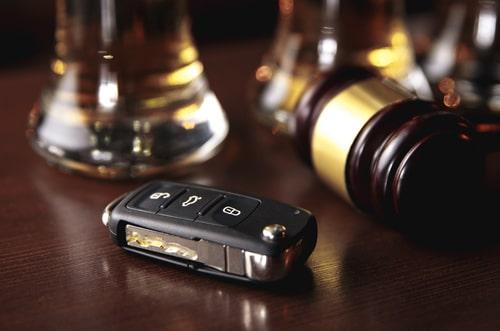 Ahead of Labor Day weekend, a multinational alcohol company launched a virtual campaign to warn Californians who plan on partying over the weekend about the dangers of drinking and driving. Diageo North American partnered with the United Nations Institute for Training and Research to launch the “Wrong Side of the Road.”
Ahead of Labor Day weekend, a multinational alcohol company launched a virtual campaign to warn Californians who plan on partying over the weekend about the dangers of drinking and driving. Diageo North American partnered with the United Nations Institute for Training and Research to launch the “Wrong Side of the Road.”
Wrong Side of the Road
The educational project includes a website that hosts a series of videos in which people who have been convicted of driving under the influence (DUI) share their experiences. Many of the individuals describe the social stigma they feel as a result of their DUI conviction.
Diageo, which owns Johnnie Walker, Smirnoff, Captain Morgan, Guinness, and dozens of other beverage brands, explained they wanted to show how catastrophic it could be not just for you, but the people in your life if you decide to drink and drive.
The company said nearly 26 percent of traffic accidents deaths in California result from impaired driving. More than one-third of all alcohol-related traffic deaths occur during Labor Day weekend.
 415-729-7300
415-729-7300




